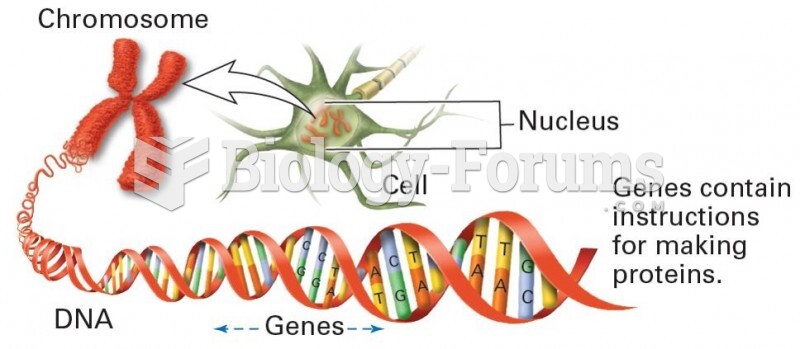|
|
|
Increased intake of vitamin D has been shown to reduce fractures up to 25% in older people.
Chronic marijuana use can damage the white blood cells and reduce the immune system's ability to respond to disease by as much as 40%. Without a strong immune system, the body is vulnerable to all kinds of degenerative and infectious diseases.
Multiple experimental evidences have confirmed that at the molecular level, cancer is caused by lesions in cellular DNA.
In 1886, William Bates reported on the discovery of a substance produced by the adrenal gland that turned out to be epinephrine (adrenaline). In 1904, this drug was first artificially synthesized by Friedrich Stolz.
When blood is exposed to air, it clots. Heparin allows the blood to come in direct contact with air without clotting.







